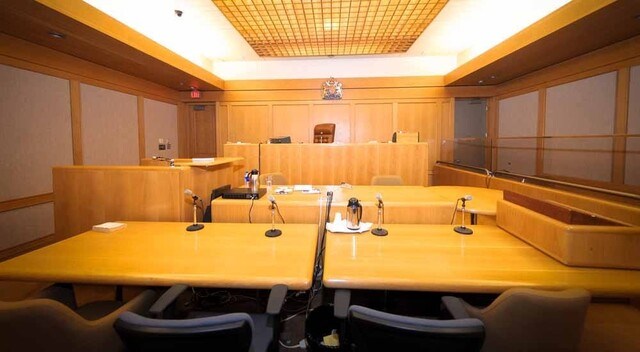A B.C. Supreme Court judge found a former resident of the Moccasin Flats homeless camp not guilty Friday, Jan. 17 of possessing methamphetamine and cocaine for the purpose of trafficking almost four years ago in Quesnel.
Justice Marguerite Church acquitted Chet Lee Bradley, 46, of the charges because she had reasonable doubt about his alleged connections to a backpack containing drugs and to the bedroom where he was found.
In her oral verdict, Church said that Quesnel RCMP had a house on Doherty Drive in Quesnel under surveillance beginning in February 2021. Known drug dealers were observed on the premises.
When RCMP officers executed a search warrant on March 5, 2021, they found Bradley sitting on a bed in an unlocked bedroom and a backpack containing the drugs.
Bradley was arrested and charged under the Controlled Drugs and Substances Act. He admitted to various facts, but maintained a not guilty plea when his trial began Aug. 13, 2024.
Church said the only issue to decide was whether Crown had proven beyond reasonable doubt that Bradley had "constructive possession" of the drugs.
“That is, that he had the drugs in a place for the use or benefit of himself or another person,” Church said.
The judge said Crown counsel pointed to a police officer’s evidence that Bradley was found seated on a bed, beside the backpack, and that that the backpack was slightly open with illicit drugs visible at the top.
“Counsel also pointed to the evidence of the other illicit drugs found in plain sight on a table in the same room, arguing that the presence of the other drugs in ‘close proximity strongly indicates knowledge and control’,” Church said.
Prosecutors also relied on the accused being the only occupant of the bedroom. A BC Hydro bill in his name was found in the bedroom and he possessed keys for the lock on the bedroom door.
But Church said she heard conflicting testimony from two police officers and questioned whether the backpack was found beside Bradley with his hands near it or whether he was found holding it.
“There is nothing connecting him to the backpack or its content,” Church decided.
The BC Hydro bill was the only residency or identification document in Bradley’s name that was found in the bedroom, suggesting he was likely the occupant.
“But, without more, it only establishes the fact that the accused resided at that address and had a utility account for that address in his name, something that would also be consistent with the defence theory that the accused was the landlord,” Church said.
The judge could not accept the Crown’s urging to consider the proximity of fentanyl and methamphetamine on a glass table in the bedroom to Bradley as “a strong indication of knowledge and control.”
“In my view, there is nothing about the presence of those drugs in plain view that can give rise to a reasonable inference that the accused must therefore have been aware that he had custody of the illicit drugs in the backpack,” Church said.
The hearing happened one day shy of a year since the Jan. 18, 2024 sentencing of Bradley in Quesnel Provincial Court for trafficking a controlled substance. He received a 13-month jail sentence and lifetime firearms ban for the July 8, 2022 offence.
Bradley was identified as a tattoo artist on disability for severe anxiety disorder in Justice Simon Coval’s February 2022 dismissal of the City of Prince George’s application to close the downtown Prince George homeless camp, also known as Moccasin Flats.


